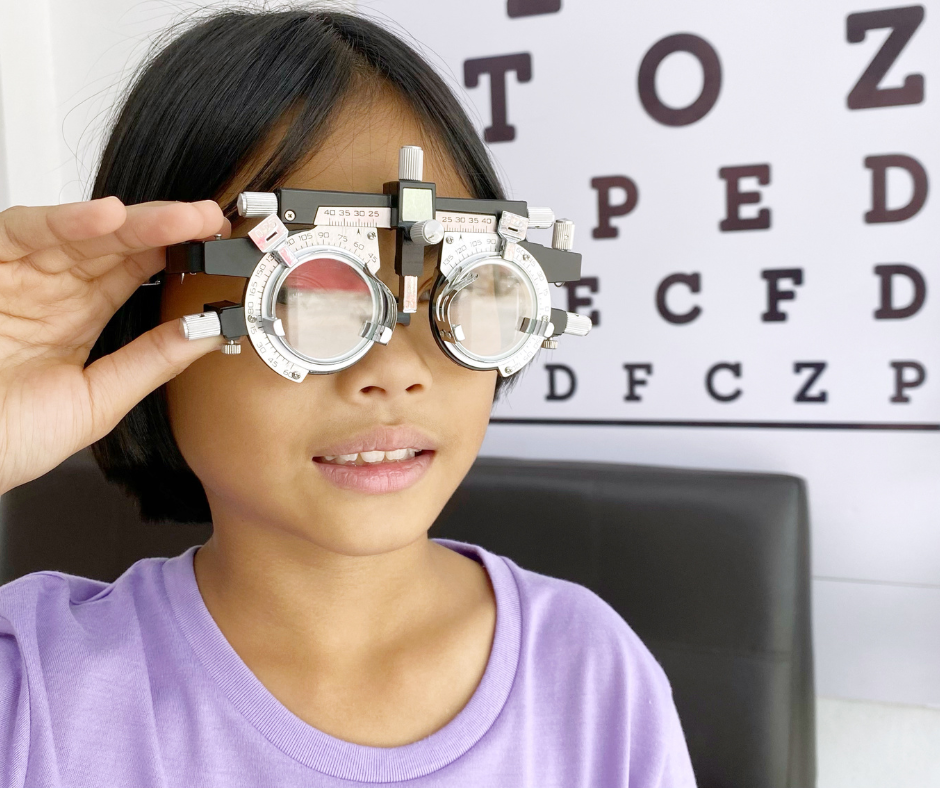Parents want the best for their children, and good vision is a vital part of a child’s development and learning. Many parents, however, are unaware of subtle signs that may indicate a vision problem. Scheduling a Children’s Eye Exam Mississauga early can prevent learning difficulties, developmental delays, and eye strain. Detecting vision issues in children is essential because young eyes develop rapidly, and early intervention can ensure that your child sees clearly and comfortably. Recognizing the early warning signs helps parents take action before problems affect school performance, sports, or daily activities.
Squinting or Tilting the Head
Children may squint or tilt their heads when focusing on objects, reading, or using digital devices. This behaviour often indicates difficulty seeing clearly, as they attempt to adjust their line of sight for better focus. Persistent squinting can lead to headaches or eye strain over time. Parents who notice these behaviours should consider scheduling a professional eye exam to determine if a refractive error such as nearsightedness, farsightedness, or astigmatism is causing the problem.
Frequent Eye Rubbing
Eye rubbing in children is common, but frequent or intense rubbing may indicate discomfort or fatigue. This can be due to dry eyes, allergies, or vision strain. Repeated rubbing can further irritate the eyes and contribute to headaches or blurred vision. An early evaluation by an optometrist can identify the underlying cause and provide solutions, such as prescription lenses, eye drops, or allergy management strategies.
Difficulty Reading or Holding Books Too Close
Children who hold books very close to their face, skip words, or have trouble tracking text may be struggling with their vision. These behaviours can be signs of refractive errors or binocular vision problems that affect reading skills. Early detection is essential to prevent learning difficulties and to ensure that reading becomes a comfortable and enjoyable activity.
Frequent Headaches or Eye Strain
Children may not always communicate vision issues directly, but frequent complaints of headaches, eye strain, or fatigue can be a warning sign. Eye strain often arises when a child’s eyes are working harder to focus than they should. A professional eye exam can identify whether prescription lenses or vision therapy might be necessary to alleviate discomfort and support healthy visual development.
Trouble with Coordination or Sports
Children who struggle with hand-eye coordination, catching a ball, or judging distances may be experiencing visual challenges. Depth perception, peripheral vision, and focus are crucial for many sports and physical activities. Optometrists can conduct a comprehensive evaluation to ensure that a child’s visual skills support their physical abilities, helping them perform confidently in sports and daily tasks.
Covering One Eye or Closing an Eye to See Better
If a child consistently covers one eye, closes an eye, or squints when looking at distant objects, it may indicate issues like amblyopia (lazy eye) or unequal vision between the eyes. Detecting and addressing these conditions early is critical for proper visual development. Delaying treatment can lead to long-term vision deficits that are more difficult to correct later.
Sensitivity to Light or Excessive Tearing
Sensitivity to light, or photophobia, and excessive tearing are less obvious but important signs that something may be affecting a child’s vision. These symptoms can result from eye infections, refractive errors, or other ocular conditions. Early assessment by an optometrist ensures that the cause is identified and treated promptly, reducing discomfort and preventing potential complications.
Avoiding Close Work or Reading Tasks
Some children may avoid reading, drawing, or other close-up activities because of vision difficulties. This avoidance can negatively impact academic performance and skill development. Identifying the root cause through a comprehensive eye exam allows for timely correction, whether through lenses, vision therapy, or behavioural strategies to encourage comfortable and productive engagement in close work.
Behavioural Changes or Irritability
Subtle behavioural changes, such as irritability, withdrawal, or decreased concentration, can sometimes be linked to vision problems. When children are unable to see clearly or comfortably, they may become frustrated or lose interest in activities they previously enjoyed. An eye exam helps distinguish between vision issues and other concerns, allowing parents to support their child’s overall well-being effectively.
Conclusion: Early Detection Supports Healthy Vision Development
Children’s eyes develop rapidly, and early detection of vision problems is crucial for long-term eye health and academic success. Squinting, frequent eye rubbing, difficulty reading, headaches, or trouble with coordination are signs parents should never ignore. Regular comprehensive eye exams provide professional guidance, accurate prescriptions, and interventions that ensure children see clearly and comfortably. For parents in Mississauga seeking expert care, Meadowvale Optometry offers thorough evaluations and personalized solutions to protect and enhance your child’s vision, supporting both learning and everyday activities.





Comments